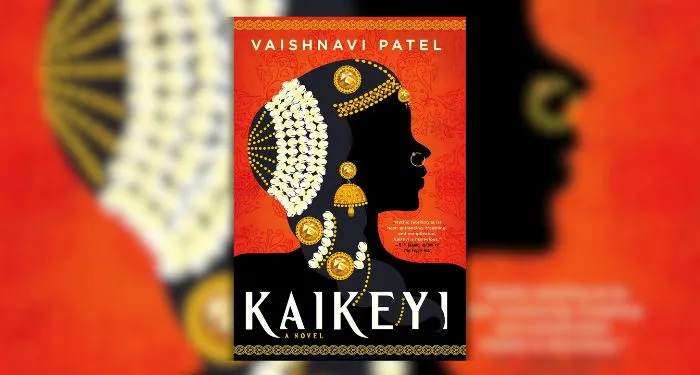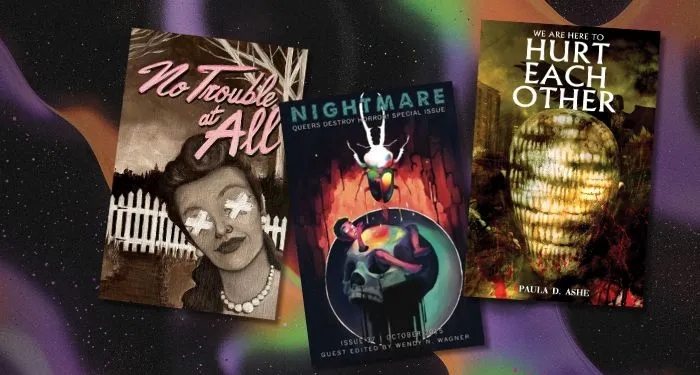I am delighted to welcome Lucy M. Black to Linda’s Book Bag today to tell me all about her latest book. My huge thanks to Hollay at River Street Writing for putting us in touch with one another. Let’s find out more about Lucy’s brand new book:
Staying in with Lucy E.M. Black
Welcome to Linda’s Book Bag, Lucy and thank you for agreeing to stay in with me. Tell me, which of your books have you brought along to share this evening and why have you chosen it?

I’ve brought A Quilting of Scars with me this evening. It is my newest book (released October 15 with Now or Never Publishing).
Happy publication day Lucy and what a fantastically atmospheric cover.
I chose it because I think the book is timely in terms of what I view as the frightening rise of the right and the persecution of marginalized and vulnerable peoples.
It sounds as if A Quilting of Scars is hugely important and pertinent to today’s world. What can we expect from an evening in with A Quilting of Scars?
Let me share with you what readers think. The following endorsements have come in for the novel:
Black writes with a wonderful sense of place, as she takes the reader back to a “not so” gentler time. A comfortable, yet suitably disturbing read about secrets and the ever-present of the past.
-Robert Rotenberg, author of the bestselling ONE MINUTE MORE.
At once a searing portrait of rural life at the turn of 19th century Canada, profound family drama, and a dark mystery, Lucy E.M. Black’s A Quilting of Scars takes the reader on a tumultuous journey from the ashes of a tragic fire to the revelation of secrets and recriminations that burn just as deeply.
-Anthony Bidulka, author of Going to Beautiful, winner of Crime Writers of Canada Best Crime Novel, and the Merry Bell mysteries.
A Quilting of Scars by Lucy E.M. Black is a gorgeously textured story of the brutality and sorrows of submerged identity and trauma. Set in the early 1900s in rural Ontario, Black’s writing is stylistically cinematic and thematically universal. Her masterful use of the historical fiction genre serves to amplify human behaviour, allowing us to take it out of our current context and place it in an uncluttered setting that is free of contemporaneous issues and distractions. The effect is a deftly-crafted character-driven narrative that’s as breathtaking as it is shattering.
-Hollay Ghadery, author of Fuse, Rebellion Box, and Widow Fantasies
Aging bachelor Larkin Beattie is still haunted by a decades-old double murder on the next farm over. Folks assume his childhood friend Paul killed his abusive father and brother. Larkin knows things others don’t.
Hearty as a farm-cooked meal and resonant with Lucy E. M. Black’s spot-on period dialogue and detail, A Quilting of Scars is the story of a reserved, plain-spoken man and the unsettling friendship that shapes his life. Larkin Beattie will linger with you long after you’ve finished reading this remarkable book.
-K.R. Wilson, author of Call Me Stan and An Idea About My Dead Uncle
Lucy E.M. Black’s aptly named A Quilting of Scars is written with grace and depth of character. As with all of her moving historical fiction, Lucy immerses her reader in details. In this early 20th century Canadian story, she touches on animal husbandry, small town life, illness, religious zeal, guilt, shame, and the burden of secrets. The novel moves back and forth in time at a moving pace and yet with delicate sensitivity. There is profound loneliness in protagonist Larkin, ashamed of who he might be, and yet somehow, throughout his life he held his ground, ‘lest he disappear into the blackness.’ Larkin contemplates how a life might have unfolded differently if he’d been able to trust and share closely guarded secrets and not rub sadness deeper into his pores.
-Gail Kirkpatrick, author of Sleepers and Ties
Lucy Black has done it again. In “A Quilting of Scars,” she has created a delightful novel set in the late Victorian and early Edwardian era. We find ourselves plunged into the fictitious rural Ontario community of Murton, somewhere in the quiet landscape of Grey and Simcoe counties. On the first page we are immediately thrust into the sights, sound and aromas of farming life through the life of Larkin Beattie, a farmer with a love of horses. Ms. Black draws us into the deeply personal life of this practical man, a bachelor with unrequited, thwarted romances. We join him in his daily chores and social encounters, discreet and otherwise. We understand, and identify with his inner pleasures and his anguish.
Running through this skilfully crafted historical novel, are unobtrusive, yet relevant mysteries and secrets that keep the reader closely attached to the narrative. Even in the dialogue, with its vocabulary, colloquialisms and phrasing from more than a century ago, we are spirited back to that seemingly less complicated era. But it was still a time of hidden stresses.
Throughout the work we are constantly reminded that, in spite of our present-day advances in technology and communication, human nature remains a constant throughout history. A delightful read.
-Paul Arculus, writer and historian
In A Quilting of Scars, Lucy E.M. Black weaves a murder mystery through the threads of farm life in the early twentieth century, expertly and delectably unfolding the intrigue with the everyday. Black uses cadence, dialect, and honed insight to immerse the reader in the life and psyche of Larkin Beattie — farmer, friend, and secret holder. We get poignant and fascinating glimpses into the hardships and joys of rural existence in Ontario’s past through the eyes of a man wracked with guilt, betrayal, and remorse.
-H&A Christensen, authors of Stealing John Hancock
Lucy E.M. Black’s mellifluous prose conjures a lost world, steeped in love of family, memory, and the quiet echoes of regret. In Larkin, she crafts a character who carries the weight of grief, loss, and guilt, each shaping him in ways he cannot comprehend. His solace in the rhythms of farm life—its hard work, its quiet joys—cannot erase what has happened, nor the secret he keeps close: his love for a friend implicated in a murder that shattered his rural community. Among Black’s unforgettable creations, Larkin stands as both burdened and transcendent, a figure who lingers in the reader’s mind, refusing to be forgotten. This is a story of reckoning, remembrance, and the fragile hope found among the shadows of the past.
-AnnaLiza Kozma, Journalist and Senior Producer, CBC Radio
Goodness me! You must be beyond thrilled with those reactions Lucy – they’ve certainly made me want to add A Quilting of Scars to my towering TBR!
What else have you brought along and why have you brought it?
I’ve brought a vintage poster called THAT SPLENDID HORSE, YOUNG NETHERBY! It’s dated May 1st, 1874 and announces Netherby will stand for mares this season at $4 a single leap. It was this poster that was the seed of the novel.
How brilliant!
I’ve also brought with me a pair of sheep shears in the event that people don’t know what they look like.
They take me back to my childhood Lucy, when farm life was very much part of my community. Thank you so much for staying in with me to chat about A Quilting of Scars. I think it sounds superb. Let me give readers a few more details:
A Quilting of Scars

Filled with the pleasure of recognizable yet distinctively original characters and a deftly drawn sense of time and place, A Quilting of Scars brings to life a story of forbidden love, abuse and murder. Pulsing with repressed sexuality and guilt, Larkin Beattie reveals the many secrets he has kept hidden throughout his lonely life. The character-driven narrative is a meditation on aging and remorse, offering a rich account of the strictures and rhythms of farming in the not-so-distant past, highlighting the confines of a community where strict moral codes are imposed upon its members and fear of exposure terrifies queer youth. As Larkin reflects upon key events, his recollections include his anger at the hypocrisy of the church, and the deep grief and loneliness that have marked his path. There is a timelessness to this story which transcends the period and resonates with heart-breaking relevance.
A Quilting of Scars is published by Now or Never today, 15th October 2025, and is available for purchase here or, for UK readers, here.
About Lucy E. M. Black
Lucy E.M. Black (she/her/hers) is the author of The Marzipan Fruit Basket, Eleanor Courtown, Stella’s Carpet, The Brickworks, Class Lessons: Stories of Vulnerable Youth and A Quilting of Scars. Her award-winning short stories have been published in Britain, Ireland, USA and Canada in literary journals and magazines including Cyphers Magazine, the Hawai’i Review, The Antigonish Review, the Queen’s Quarterly and others. She is a dynamic workshop presenter, experienced interviewer and freelance writer. She lives with her partner in the small lakeside town of Port Perry, Ontario, the traditional territory of the Mississaugas of Scugog Island, First Nations.
For further information, visit Lucy’s website https://lucyemblack.com/ or find Lucy on X @lucyemblack, Facebook and Instagram.






















 English (US) ·
English (US) ·